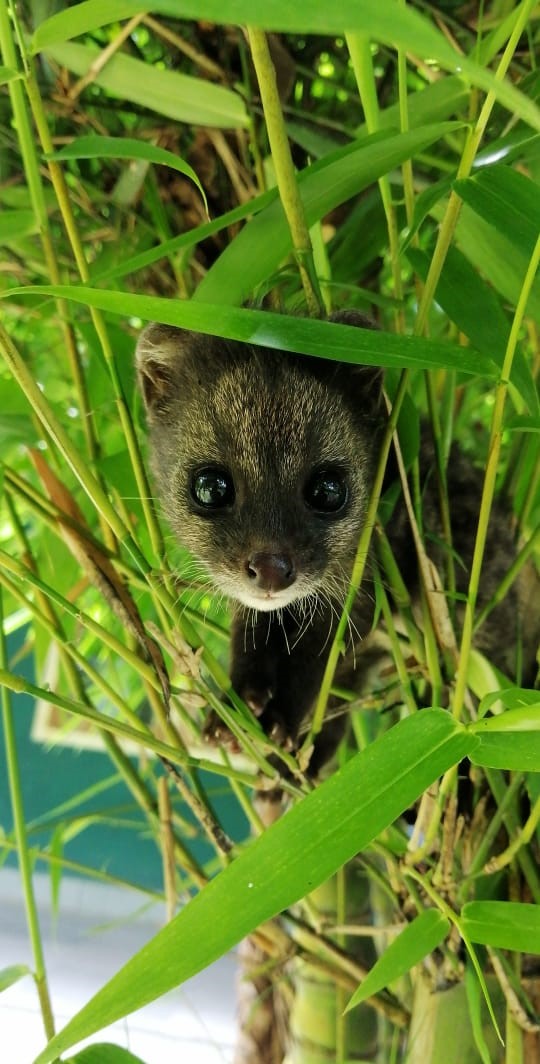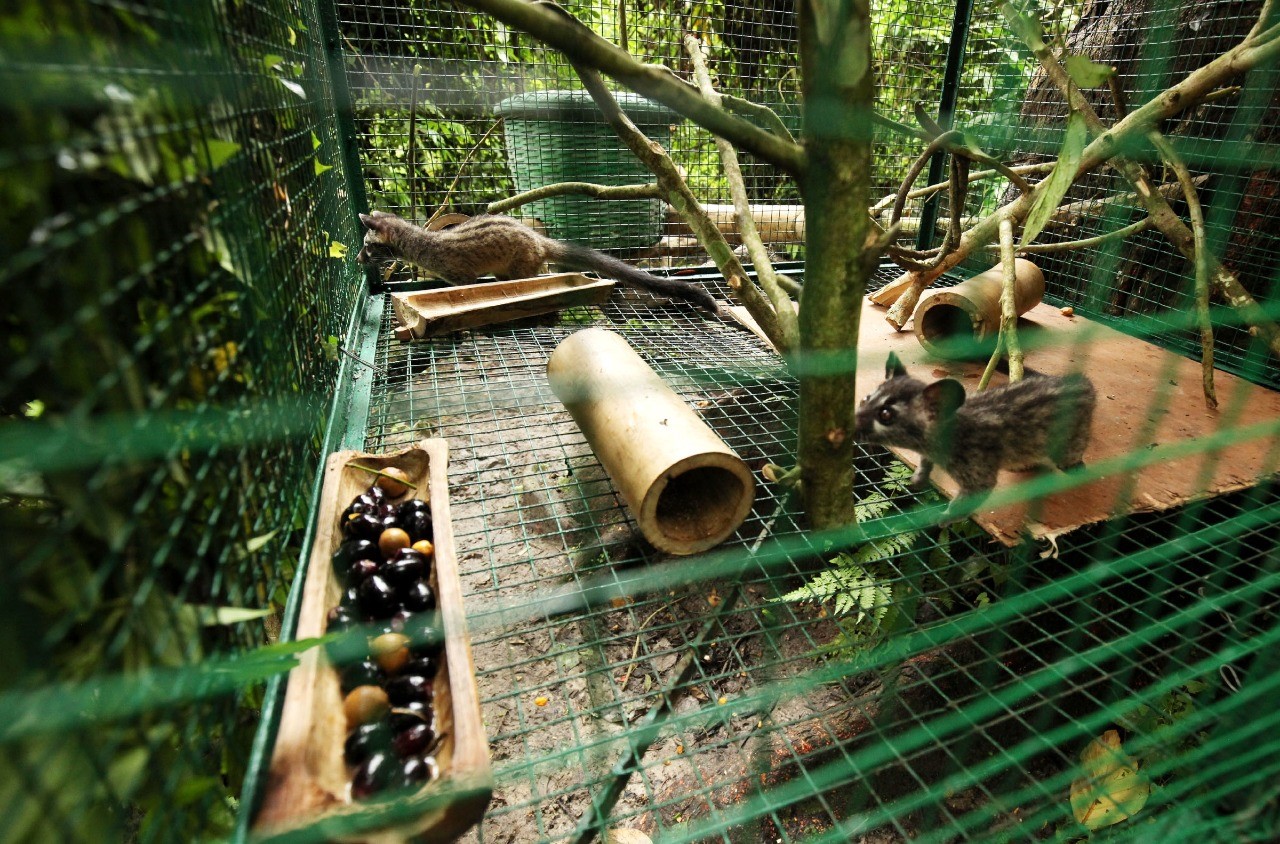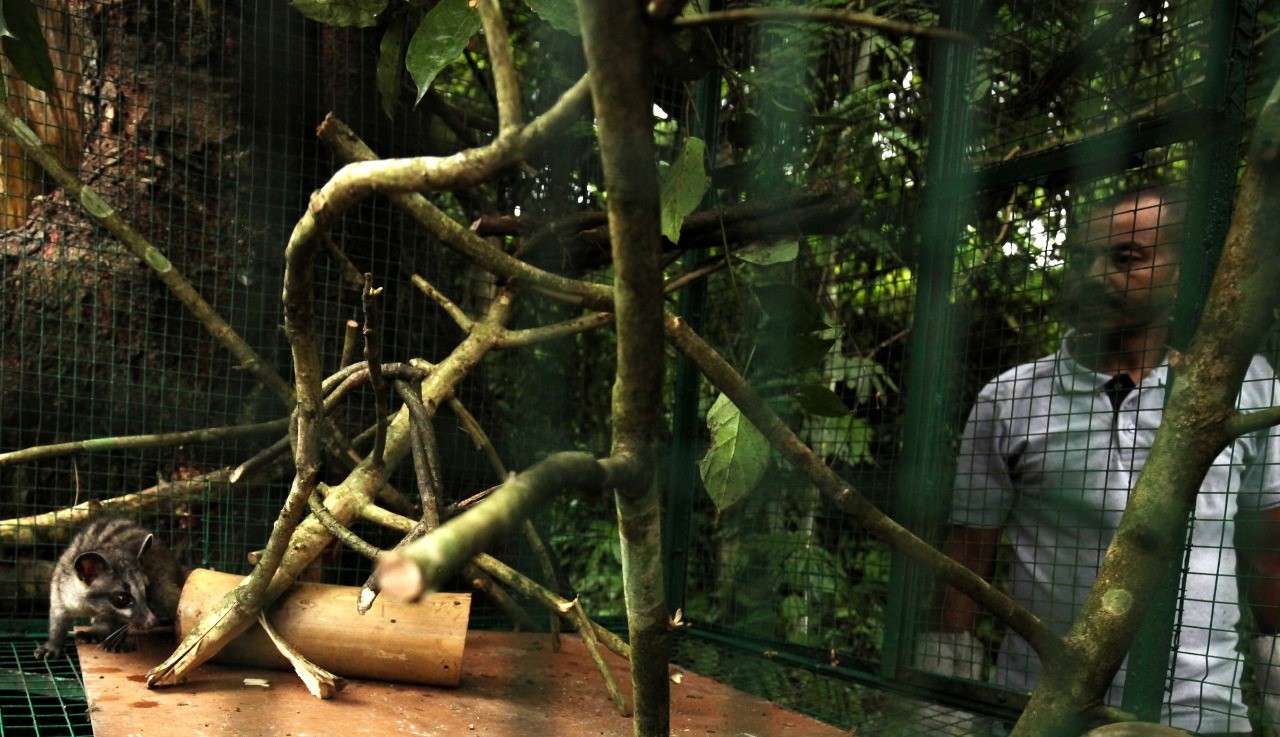If someone told me four months ago that this photograph of a basket resting atop some branches in the tropical forests of Assam, would have an emotional significance for me, I would not have believed them. Today it rings true.
I joined Wildlife Trust of India six months ago, and within a month I was out at the project site in Assam for some field orientation. Each day, in a room tucked behind the main office of the Centre for Wildlife Rehabilitation and Conservation (CWRC) building, I woke up to the orchestra of insects and amphibians serenading the morning sun. Although, it took me a while to get acquainted with the Tokay geckos living in my room. it certainly did not help when they paid an unwelcome visit to the bathroom while I had occupied it. At first their loud ‘to-kay’ calls left me petrified. But slowly, as I spent a few days in the jungle, the wildlife sights and sounds became a norm. I was in the wild, after all.
My first exposure to wildlife rescues happened one fine day when some locals reported a civet pup, roughly a week old, found alone in Salna, a village about 100km from Bokakhat where I was lodged.





“The winds were howling last night, maybe it was the storm that separated the pup from the mother” said a man from the local community to our staff member while handing over the tiny creature. At a glimpse, I could not identify the animal. From where I stood, it looked like some animal from the rat family. I was confused, yet intrigued.
Later that day, I visited the infant during its scheduled feeding time to observe the marvel. It sure was!
The animal keeper, one that had been working in the centre for over 15 years, tapped into his treasury of knowledge to tell me all about civets and the usual causes behind their admission to CWRC.
Civet cats belong to the Viverrid family, the same family to which the Binturong and Central African oyan belong. There are up to 9 species of wild civets in India. In certain Southeast Asian countries, civets are captured for the commercial production of perfumes as they secrete a musk-like liquid that they use for territorial marking. The demand for Kopi luwak, or civet coffee has also been detrimental to civet welfare in countries like Indonesia.
In Assam, civets often venture into human settlements in search of food. I spent the day learning all about them, the causes behind their admission into CWRC and the methods involved in hand raising the pups. And without a doubt, I enjoyed every minute of it.
In the few weeks I spent there, I watched the civet grow slowly. I often woke up early to ensure the pup was fed, and slept at night after feeding my tummy and her’s. Towards the end of my stint there, I had formed a bond with the pup. I’ll be honest. Field conditions are tough; I missed my bed at home. But leaving the pup after hand raising it for what seemed like forever, I was reluctant to leave. With a heavy heart, I packed my rucksack and headed back to the concrete jungle called Delhi.
Weeks went by as updates came pouring from the field regarding the growth and progress of the pup. I was happy to know she had company when another civet pup was rescued. In reports I would come across photos of the two of them playing together, with her playing the role of an elder sister to the new pup. A few weeks later, they began their forest walks and tree climbing adventures.
The end of the rehabilitation process (and a new beginning for the civets in the wild) came nearer when the civets were taken to the forest to be released. Which brings us back to the beginning of this story. I received these photographs from our colleague, Subhamoy when the in situ enclosure was being prepared for their eventual release. The visuals served as a final flourish to my first experience with the wild. The civets will finally roam the forests of the Kaziranga landscape, Forever Wild.
About the author: If not found in your nearest climbing gym, Aradhana Singh will be scaling the Himalayas or diving to the depths of the ocean in search of all that remains wild. Contact her at po.wildrescue@wti.org.in